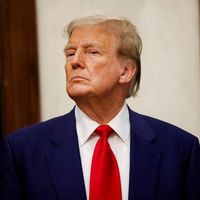Pezeshkian and the last stand of Iran's 'reformists'
In its latest move, Iran’s “Reform Front” says it will not interfere in newly-elected President Pezeshkian’s decisions, but will instead support his administration and question decisions when necessary.
Speaking on behalf of the coalition of reformist factions in Iran, Secretary Azar Mansouri’s statement did not signify merely avoiding undue interference in the executive branch's work.
Instead, it implies a refusal to take responsibility for an administration that came into office with the reformists' support, but falls short of addressing their demands from three decades ago.
Are the reformists now abandoning their quest for influence within an administration they heavily invested in, both materially and politically, and staked their remaining political capital on? The question remains: Why did they support Pezeshkian if they now choose to remain political spectators?
Reformists and the Khatami administration
Former President Mohammad Khatami's administration (1997-2005) was the first to receive full support from the reformists.
Despite some members, such as the ministers of foreign affairs, defense, commerce, information, and education, not being reformists, they did not openly oppose reformist agendas.
Consequently, reformist parties and the “Reform Front” regarded this administration as their own and felt obligated to defend it. They continue to defend its record despite failures that have been much discussed in the past two decades.
Reformists and Rouhani's administration
None of the prominent reformist parties and figures considered former President Hassan Rouhani to be a reformist, nor did he claim to be one.
As a member of the Moderation and Development Party, Rouhani presented himself as a moderate, particularly in foreign affairs.
For this reason, reformists saw his administration as a "surrogate womb," allowing them to remain within the establishment's structure with the hope of regaining power in the future. They adopted this tactic after forces loyal to Supreme Leader Ali Khamenei sidelined them during Mahmoud Ahmadinejad's second term, leaving them little chance of taking back the presidency.
Reformists and Pezeshkian’s administration
Now, as Pezeshkian's administration is about to be formed, the question arises: What do prominent reformist parties and figures like Mohammad Khatami expect from this administration, and what were their expectations when they supported him in the election?
The Pezeshkian administration does not have the stature of Khatami’s, which was backed by a massive social movement and 23 million votes.
Nor does it match Rouhani’s, who was one of the founders of the Islamic Republic. Therefore, they do not expect the new president to be a channel for the reformists to rise to power as they did in 1997.
The two finalists for the Vice President position are Mohammad Reza Aref, who served as Khatami’s VP, and Mohammad Shariatmadari, a minister in both the Khatami and Rouhani cabinets. Both candidates are loyal to and trusted by Khamenei.
The inclusion of former Foreign Minister Javad Zarif and other so-called "reformists" and "moderates" in the transitional council responsible for introducing ministerial candidates to Pezeshkian highlights the likely composition of the new cabinet.
Several working groups have been established to compile a list of candidates for each ministry, allowing for reasonable predictions about the final selections. The future ministers, supposedly younger and without prior ministerial positions, will in all likelihood be drawn from five distinct groups:
One natural group would be officials personally chosen by Khamenei. Typically, the ministers of foreign affairs, intelligence, Islamic guidance, and the interior are chosen by Khamenei himself.
Another group would include the ministers of defense and justice, who are selected by the Islamic Revolutionary Guards (IRGC) and the Judiciary, respectively.
People from the opposite faction will be added to the cabinet so that Pezeshkian can show that his cabinet is multi-factional.
The economic ministers will be determined according to the demands of Khamenei and the IRGC’s economic empires.
The remaining few will likely be determined by individuals who identify as “reformists” or “moderates” – though, the “reformist” social base in Iran typically does not view these individuals as good representatives of their agenda.
Based on Khamenei’s recommendation, Pezeshkian’s administration will follow Raisi’s path rather than pursuing a national unity agenda.
It would appear that “reformists” do not and cannot expect the new president to do much beyond offering them minimal support to keep their movement alive.
Thus, if the first week after the elections has not disappointed some of his supporters - with his meetings with military commanders and having night tours of religious mourning ceremonies – they will in near future when his admin will be introduced to Parliament.
In an op-ed, Rouhani's political advisor called the Pezeshkian’s foreign policy map "confused, without priority, dreamy, incoherent, with a lot of generalizations about everything and anything".
If the "We Regret" campaign of Rouhani's voters emerged six months after his second inauguration, it will likely arise much sooner for Pezeshkian. The composition of his cabinet is expected to reveal that no significant changes are forthcoming.
This time, the anticipated regret from the supporters of the new administration will be conveyed through silence and harsh criticism. Their regret won't be used as a tool to pressure the administration for change, unlike before, but rather to express mere hopelessness.







